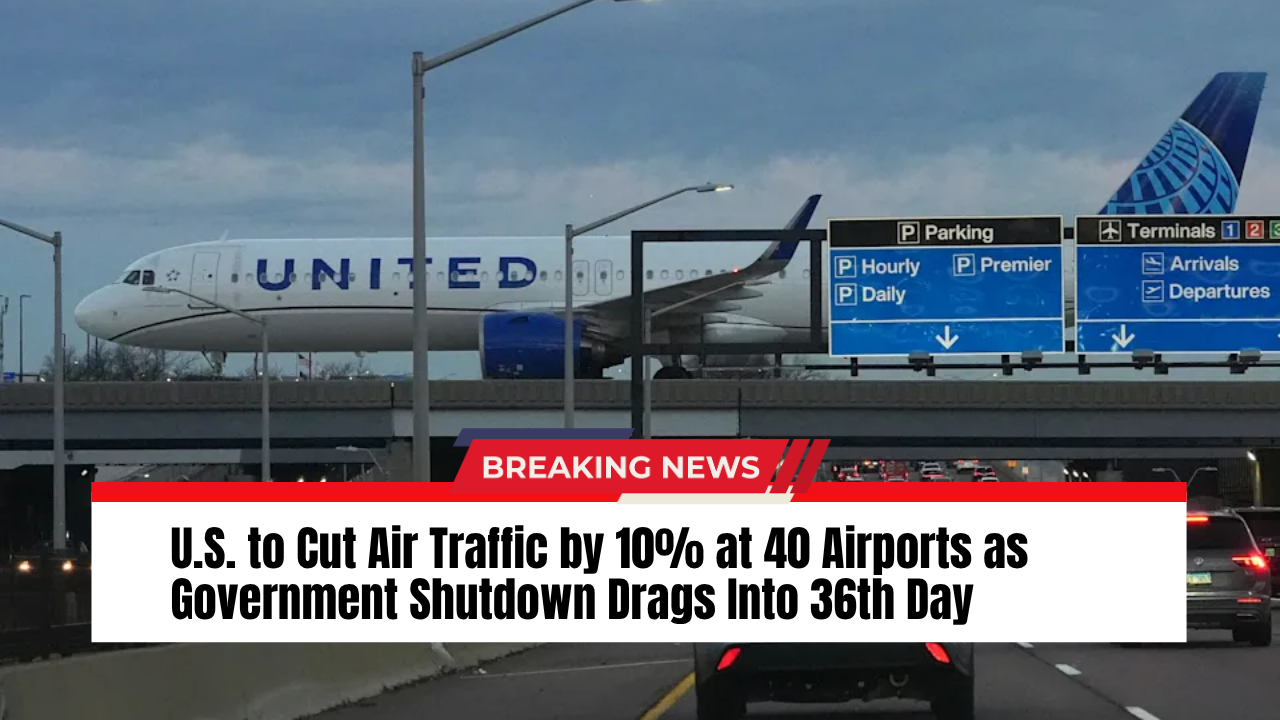The U.S. Department of Transportation (DOT) announced Wednesday that it will reduce scheduled air traffic by 10% at 40 major airports starting Friday if Congress fails to end the ongoing federal government shutdown.
Transportation Secretary Sean Duffy said the move is a last-resort effort to relieve exhausted air traffic controllers, who — along with 50,000 Transportation Security Administration (TSA) officers — have been working without pay for more than a month.
“We had a gut check of what is our job,” Duffy told reporters. “This step is necessary to protect both the workforce and the flying public.”
Widespread Effects on Air Travel
The shutdown, now entering its 36th day, has already caused thousands of flight delays, long security lines, and staffing shortages across the nation’s airports. The Federal Aviation Administration (FAA) warned that additional flight restrictions could follow if conditions worsen.
Although Salt Lake City International Airport is not directly included in the planned reductions, spokesperson Nancy Volmer said travelers should prepare for indirect delays due to congestion at affected hubs nationwide.
“Flights to and from impacted airports could face ripple effects,” Volmer said in a statement.
Airlines and Industry Push for Resolution
Major carriers — including United Airlines and American Airlines — called on Congress to reach a funding deal, citing rising safety concerns. Shares of both companies dropped about 1% in after-hours trading Wednesday following the DOT announcement.
An airline trade group estimates that more than 3.2 million passengers have already faced flight delays or cancellations linked to air traffic controller absences since the shutdown began October 1.
The FAA reported that 20% to 40% of controllers at the 30 busiest U.S. airports have failed to report for work, citing financial strain and fatigue.
Economic and Political Fallout
The shutdown has paralyzed much of the federal government as Republicans and Democrats remain locked in a standoff over a long-term spending bill. Democrats have refused to back a plan that excludes health insurance subsidies, while Republicans have rejected those conditions.
Secretary Duffy warned earlier this week that a prolonged stalemate could lead to “mass chaos” in U.S. aviation and even partial airspace closures — an unprecedented measure that could cripple travel and commerce.
Despite airline assurances that ticket sales have not yet been severely impacted, analysts warn that consumer confidence could drop sharply if the crisis extends into the busy holiday travel season.
As of Wednesday evening, more than 2,100 flights had been delayed nationwide, according to tracking data.



